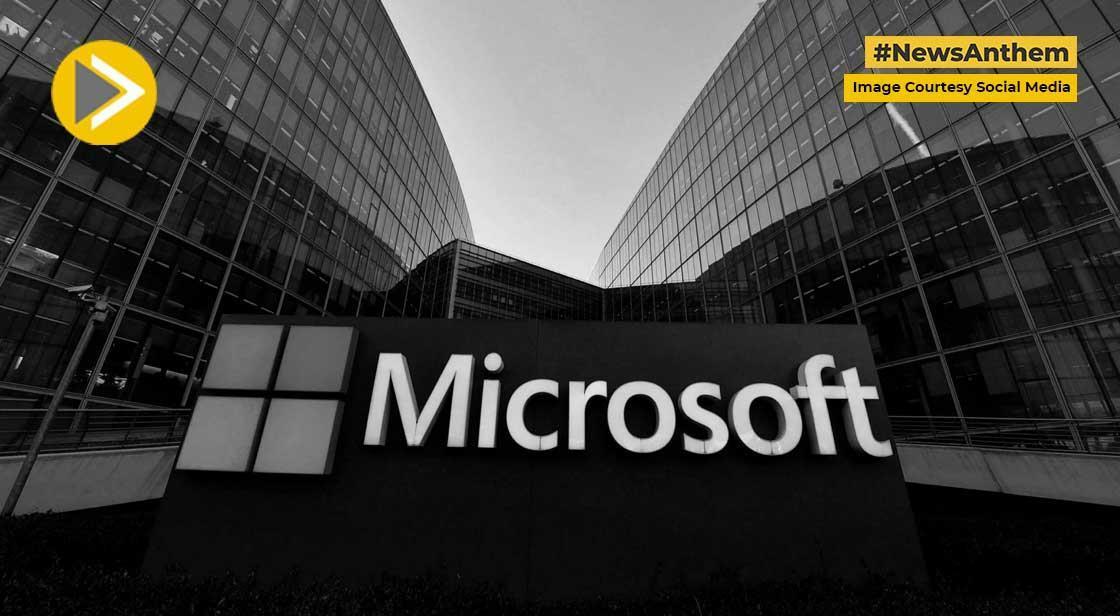Microsoft Expands AI Models for 365 Copilot to Decrease Dependence on OpenAI

News Synopsis
Microsoft is ramping up its efforts to diversify the artificial intelligence (AI) models that power its widely-used Microsoft 365 Copilot, marking a significant step in reducing its reliance on OpenAI.
Sources informed Reuters that the tech giant aims to incorporate both in-house and third-party AI models into its flagship AI product. This strategic pivot not only aims to lower operational costs but also enhances the scalability and performance of AI-driven enterprise tools.
Microsoft’s Shift Towards Diverse AI Models
Launched in March 2023, Microsoft 365 Copilot quickly gained popularity by leveraging OpenAI's GPT-4 model. However, Microsoft is now actively training smaller, proprietary models like the Phi-4 small language model and fine-tuning open-weight models to optimize efficiency.
A Microsoft spokesperson stated:
“OpenAI remains our collaborator on frontier models.”
While emphasizing the ongoing partnership, the spokesperson highlighted Microsoft's broader approach of employing diverse AI models to enrich its products and services.
The Benefits of Diversification
The diversification strategy aligns with Microsoft’s broader vision of controlling AI-related costs and enhancing performance for its corporate clients. Insiders revealed that Microsoft CEO Satya Nadella and other key leaders are personally overseeing these efforts. The ultimate goal is to pass the cost savings onto enterprise customers while maintaining competitive pricing and service quality.
Expanding AI Across Microsoft Products
Microsoft’s move to diversify its AI foundation extends beyond 365 Copilot. Other business units, such as GitHub, have also adopted a similar approach. Since October 2023, GitHub has integrated AI models from Anthropic and Google, complementing OpenAI's GPT-4. Similarly, the consumer-focused chatbot Copilot utilizes a blend of in-house and OpenAI technologies, demonstrating Microsoft's commitment to leveraging multiple AI sources.
Challenges and Opportunities for 365 Copilot
Microsoft 365 Copilot has introduced advanced AI capabilities directly into applications like Word and PowerPoint, revolutionizing productivity tools for businesses. However, it has faced criticism regarding its high pricing and the perceived value it offers.
According to a Gartner survey, many IT companies are still in the trial phase of integrating Microsoft 365 Copilot into their workflows. Despite this, adoption rates show promising growth:
-
Analysts at BNP Paribas Exane project that 365 Copilot will have over 10 million paid users by the end of 2024.
-
Microsoft reports that 70% of Fortune 500 companies are already leveraging the tool, underscoring its appeal among large enterprises.
A Balanced Approach to AI Innovation
Microsoft’s shift towards diversifying AI models reflects its long-term commitment to innovation, cost efficiency, and customer satisfaction. By incorporating a mix of in-house and external AI technologies, the company is positioning itself as a leader in the enterprise AI market while reducing its dependency on any single partner.
This evolution in strategy not only enhances the scalability of Microsoft's AI-driven solutions but also ensures that enterprise clients benefit from cutting-edge technology at optimized costs.
Conclusion
Microsoft's decision to diversify the AI models powering its 365 Copilot represents a pivotal moment in its AI strategy. By incorporating smaller in-house models and third-party technologies, the tech giant is reducing its reliance on OpenAI while optimizing costs and enhancing efficiency. This approach not only addresses pricing concerns but also ensures that enterprise clients receive cutting-edge solutions tailored to their needs.
The adoption of AI models across various Microsoft products, from GitHub to consumer-focused tools, showcases the company's commitment to innovation and scalability. With 70% of Fortune 500 companies already using 365 Copilot and projections of over 10 million paid users by year-end, Microsoft's AI strategy is poised to strengthen its leadership in the enterprise technology market.
As Microsoft continues to balance innovation with cost savings, its diversified AI model portfolio positions the company for long-term growth and reinforces its commitment to delivering value to customers worldwide.
You May Like









